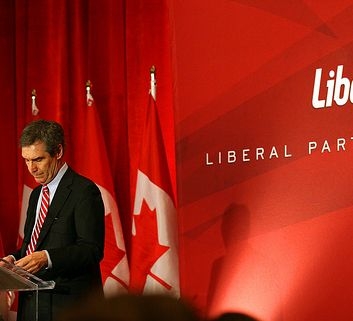
The SNC-Lavalin saga continues as the actions of board members Kevin Lynch and Eric Siegel raise questions about ethics law
Today, Democracy Watch released the letter it has sent to federal Ethics Commissioner Mario Dion, calling on him to ensure an independent ruling on the activities of Kevin Lynch and Eric D. Siegel. Kevin Lynch, Canada's former highest "public servant", is the former Clerk of the Privy Council (2006-2009), Secretary to the Cabinet, and Head of the Public Service of Canada as a director. He is also the Vice-Chair of BMO Financial Group, a job he has held since leaving government in 2010. In May 2017, he was appointed Vice-Chairman of SNC. He still serves on the BMO Board. Mr. Lynch is quite familiar with how government works and how laws are made. Eric D. Siegel, former President and CEO of Export Development Canada (EDC) has been a board member of SNC-Lavalin since January 2012 and is also a board member for Citibank Canada.
In their letter, Democracy Watch is of the opinion that Kevin Lynch and Eric Siegel must be giving advice in their roles with these companies, and their advice must be, at least in part, based on secret information they learned on the job.
Subsection 34(2) of the federal Conflict of Interest Act prohibits former public office holders from ever giving “advice to his or her client, business associate or employer using information that was obtained in his or her capacity as a public office holder and is not available to the public.”
SNC-Lavalin has had many interactions with the federal government in the past few years, mainly related to prosecution for bribery. EDC has provided support to SNC-Lavalin for decades, including at least five times since Mr. Siegel became a board member, and at least twice to Citibank since 2015. As well, SNC-Lavalin, Bank of Montreal, and Citibank have been lobbying the federal government throughout Mr. Lynch’s and Mr. Siegel’s time in their top jobs.
By giving this advice, and if they have communicated with government officials they knew while in the government, such as Mr. Lynch making the phone call for SNC-Lavalin to then-Clerk of the Privy Council Michael Wernick on October 15, 2019, Mr. Lynch and Mr. Siegel also violate section 33 of the Act, which prohibits taking improper advantage of one’s former office.
“Kevin Lynch and Eric Siegel can’t unlearn the secret information they learned while working for the federal government, and so the advice they give their companies must be based at least somewhat on that secret information, which violates the federal ethics law,” said Duff Conacher, Co-founder of Democracy Watch.“Ethics Commissioner Dion should not make the ruling in these cases because he was handpicked by the Trudeau Cabinet through a very secretive, Cabinet-controlled, dishonest process.”
Democracy Watch has also filed a complaint with the federal Commissioner of Lobbying about Mr. Lynch failing to register his call to Mr. Wernick as lobbying in the Registry of Lobbying in violation of the Lobbying Act, and also a complaint with the federal Ethics Commissioner about Mr. Wernick giving Mr. Lynch preferential treatment by taking his call, in violation of section 7 of the Conflict of Interest Act.
Democracy Watch’s position is that Ethics Commissioner Dion should delegate the investigation and ruling on the situation to a provincial ethics commissioner who has no ties to any party, given that he was chosen by the Trudeau Cabinet after a secretive, Cabinet-controlled, dishonest process that failed to consult with opposition parties as required by the Parliament of Canada Act. Mr. Dion also has a record 8 unethical and questionable actions when he was federal Integrity Commissioner. As well, his senior lawyer’s sister is the spouse of Liberal Cabinet minister Dominic LeBlanc.
Democracy Watch’s February 8th and March 5th letters to Ethics Commissioner Mario Dion are the basis of the Commissioner’s current investigation of everyone who may have tried to influence the former Attorney General in violation of section 9 of the Conflict of Interest Act. Ethics Commissioner Dion sent Democracy Watch a letter on February 26th confirming his investigation of its complaint.
Democracy Watch also called on the House Ethics Committee to ensure it strongly recommends more than 30 key changes when it next review the federal Conflict of Interest Act, including closing loopholes and prohibiting Cabinet ministers, staff and appointees from being in an appearance of a conflict of interest (the standard all federal government employees are required to comply with under their ethics code and conflict of interest policy).









